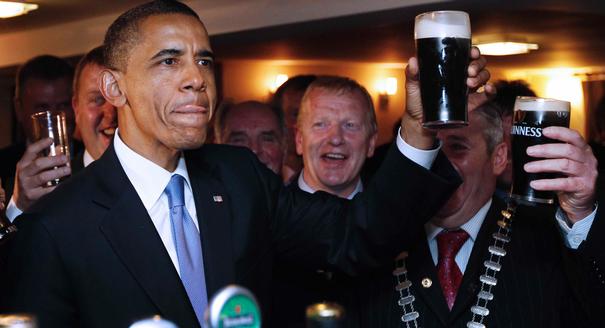The last six-pack of beer I bought ran me about $11. It was a craft Altbier from Wisconsin, and it was lovely.
Videos By Rare
It was also 44% more expensive than it needed to be.
Yep, it turns out if you total up all the taxes “levied on the production, distribution and retailing of beer,” according to the Beer Institute, they add 44% to the retail price. My Altbier pack could have cost just $6.60, which definitely would have made it even more delicious.
For craft brewers and beer drinkers in Florida, this bad situation is about to get much worse. That’s because there’s a bill making its way through the Florida state legislature right now which would force all breweries to sell their beer to distributors and then buy it back again before selling it to customers.
If this sounds completely nonsensical, that’s because it is.
For big beer makers, like Miller and Anheuser-Busch, a law like this is no problem. Corporate brewers don’t typically sell beer straight to customers anyway; and if they want to, they can afford to absorb the extra cost.
But for smaller, craft breweries in Florida, this bill could be devastating. The buy-back mark-up from distributors will force brewers to raise their prices by at least 30%, meaning a huge hike in prices at that adorable little brewpub you keep meaning to visit.
In other words, regulations like these mean less success for local brewers and therefore less tasty beer for us.
It should come as no surprise, perhaps, that the Florida state representative who sponsored the bill received $3,500 in donations from big brewers the month before he introduced this legislation.
Unfortunately, Florida’s ridiculous proposal is just the tip of the iceberg in the grand American tradition of government being beer’s enemy no. 1. Beer was first brewed in America in 1587, and since then local alcohol bans, state-level regulations, and national beer taxes have gradually increased. By the time national Prohibition went into effect in 1920, 23 states were already dry, and the total number of breweries nationwide had shrunk from more than 4,000 to fewer than 1,500.
Liquor was legal again with the end of Prohibition in 1933, but just 756 brewers survived the long ban to reopen in 1934. Over the next 50 years, beer taxes continued to climb, homebrewing was illegal, and the number of breweries shrank to a record low of just 80 by 1983. Craft brewing was essentially dead, as the “top six breweries (Anheuser-Busch, Miller, Heileman, Stroh, Coors, and Pabst) [controlled] 92% of U. S. beer production.”
By the early 1980s, American beers were known for being bland and uniform, the variety and life sucked out of them by decades of prohibitions, high taxes, onerous regulations, and homebrewing bans which made it extremely difficult for new brewers to enter the market. The picture was grim.
Then, everything changed. Homebrewing was federally legalized in 1978, and as of last summer, it’s legal in all 50 states. Today, there are over 1 million homebrewers nationwide, a change which has allowed thousands of new brewers to launch their small businesses out of their homes. Now, there are more than 2,400 craft brewers nationwide!
These are exciting times to be a beer drinker, but even with all this progress, beer is far from safe from the repressive hand of government. The Florida bill is especially ridiculous, but it’s not alone.
On a national scale, small breweries are still subject to extensive federal regulations which many can’t afford to follow. Changes that are easy for a Pabst or Coors factory to make come with exorbitant costs for microbrewers, making it impossible for many to stay in business—a classic example of the way regulations tend to benefit the big businesses which lobby for them at the expense of their smaller competitors.
Meanwhile, the Alcohol and Tobacco Tax and Trade Bureau (TTB) is limiting your access to new beers from out of state. The TTB requires all beers sold across state lines to undergo an additional approval process, which slows the distribution process and can stretch the finances of small, new breweries.
And then there’s a proposed regulation from the FDA, which would essentially ban brewers from giving their used barley to farmers to use as cow feed. “The practice serves two purposes: to help the brewers get rid of millions of tons of leftover product, and to provide a free, nutritious food source for animals at local farms”—and you can guess which breweries will be most hurt by the FDA’s destruction of this mutually beneficially practice. (If you guessed the craft brewers, not the big corporate beer makers, you’d be right.)
The good news is that it doesn’t have to be this way. We can stop bills like this Florida measure dead in their tracks, and repeal older regulations which continue to make brewing difficult for the little guy.
Ultimately, if the government will just get out of the way, the burgeoning craft beer industry can continue to flourish.
And I’ll drink to that.

